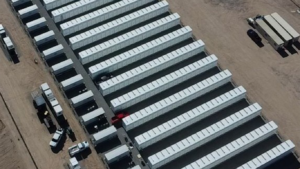Experiencing a house fire can be one of the most traumatic events in a person’s life. It can leave you feeling overwhelmed, lost, and unsure of what steps to take next. Having a comprehensive plan of action for what to do after a house fire can make all the difference in navigating the aftermath. In this blog post, we will provide essential tips and guidance to help you move forward and regain control after such a devastating event.
Immediate Actions to Take After a House Fire
In the immediate aftermath of a house fire, it’s crucial to prioritize the safety and well-being of your family. Before anything else, ensure that all family members are accounted for and unharmed.
Once you have established everyone’s safety, you can begin to move forward with the necessary steps on your house fire checklist. This includes contacting your insurance company, finding temporary housing, and beginning the process of cleaning up.
Family Safety and Communication
Establishing communication with any family members not present during the fire is essential, as well as reaching out to a trusted friend for support. It’s perfectly normal to feel a range of emotions during this traumatic event, so don’t hesitate to lean on your loved ones for comfort and guidance.
Remember, you’re not alone in this recovery process.
Contacting Your Insurance Agent
As soon as possible, contact your insurance agent to report the house fire and initiate the claim process. Your insurance company will send an adjuster to assess the fire damage done to your home. They will then provide the best course of action for repairs. It’s important to provide them with a copy of the fire report from your local fire department.
Your insurance agent will also assist with emergency lodging, living expenses, and connecting with restoration companies.
Securing the Property
Taking measures to secure the property is vital to prevent further damage and protect your home from unlawful entry. Notify utilities and local authorities, and consider using board-up services provided by restoration companies to secure windows and doors.
While it may be tempting to assess the damage, be patient and wait for clearance from the fire department before entering your home.
Decide Whether You Want To Rehab It or Sell As-Is
Once you have dealt with the immediate aftermath, it’s time to decide whether to rehabilitate your fire-damaged home or sell it as-is. This decision will depend on various factors, such as the extent of the damage, your financial situation, and your emotional attachment to the property.
Weighing the pros and cons of each option can help you make the best choice for your situation.
Selling To A Cash Buyer That Specializes In Fire Damaged Houses
Selling to a cash buyer specializing in fire-damaged houses, such our top recommendation, Fire Cash Buyers in Arizona, they can provide a quick and hassle-free solution. Cash buyers are aware of the damage and do not expect repairs, saving you time and money. Additionally, selling to cash buyers means you won’t have to employ and pay for the commission of a real estate agent.
However, ensure that the buyer is reputable and offers a fair price for your property.
Rehabbing The Fire Damage Pros and Cons
Rehabbing the fire damage can be costly and time-consuming, but it can also restore your home to its pre-fire condition and potentially enhance its value. The advantages include personal satisfaction and control over the work, while the disadvantages include potential additional damage if the work is not done properly.
Ultimately, the decision to rehab or sell as-is will depend on your individual circumstances and priorities.
Finding Temporary Housing and Support
Finding temporary housing and support after a house fire can be challenging, but there are several resources available to help you during this difficult time. Local disaster relief agencies, homeowners insurance coverage, and assistance from family and friends can provide invaluable support.
It’s important to remember that you’re not alone, and many people are willing to help you through this process.
Local Disaster Relief Agencies
Local disaster relief agencies, such as the American Red Cross, can provide immediate assistance and resources for temporary housing. These organizations can help with essentials such as food, clothing, and shelter while you navigate the restoration process.
To access their services, reach out to your local disaster relief agency or local disaster relief services by phone or internet, or contact your local government for information on agencies in your area.
Homeowners Insurance Coverage
Your homeowners insurance policy, provided by a reputable homeowners insurance company, may cover additional living expenses during the restoration process. This can include the cost of staying in a hotel or temporary rental while your home is being repaired.
Keep track of all receipts and expenses during this time to ensure proper reimbursement from your insurance provider.
Family and Friends Support
Don’t underestimate the power of support from family and friends during this challenging time. They can provide emotional comfort, as well as practical help such as finding temporary housing, providing meals, and assisting with the recovery of personal property.
Reach out to your loved ones and let them know how they can help you through this difficult period.
Salvaging Personal Property and Important Documents
After a house fire, one of your main concerns will likely be salvaging personal property and important documents. This process involves assessing what can be saved, replacing essential documents, and handling damaged money.
It’s important to approach this task systematically and carefully to ensure the best possible outcome.
Assessing Salvageable Items
Evaluate and separate items requiring restoration services following a house fire. Use photo documentation, identification numbers, and detailed descriptions to record all salvageable items. Dividing your list into “salvageable” and “non-salvageable” items can help you prioritize and focus on what can be saved.
If you’re unsure about an item’s condition, consult professionals for guidance and assistance.
Replacing Important Documents
Important documents such as driver’s licenses, birth certificates, and passports may need to be replaced if they were damaged or lost in the fire. Provide valid proof of identity and address to obtain replacements for these essential documents. You can typically obtain replacements at your local government office or online.
Remember to store any replaced documents in a secure location, such as a fireproof safe or safety deposit box.
Handling Damaged Money
If you’ve discovered damaged money in the aftermath of the fire, don’t discard it until the insurance adjuster has assessed it. Maintain records of the damaged money, including photographs and any other relevant evidence.
Follow the instructions provided by your insurance company for submitting a claim for the damaged money.
Navigating the Restoration Process
Navigating the restoration process after a house fire can be a complex and emotional journey. It’s essential to choose a reputable restoration company, coordinate with your insurance carrier, and understand the timeline for repairs.
By staying organized and informed, you can ensure a smoother and less stressful restoration experience.
Choosing a Restoration Company
Selecting a trustworthy and experienced restoration company is crucial for a successful recovery process. Consider the company’s experience in fire damage restoration, their licensing and insurance, and customer reviews. Take the time to research potential companies online and solicit references from trusted sources to find the best fit for your needs.
Doing your due diligence is the best way to ensure that you select a reliable and experienced restoration company.
Coordinating with Your Insurance Carrier
Working closely with your insurance carrier is essential to ensure a smooth claim process and proper coverage of restoration expenses. Promptly file an insurance claim and provide your carrier with the necessary information regarding the fire and the resulting damage.
Schedule a meeting with the adjuster to assess the damage and address the claim.
Restoration Timeline
The restoration timeline can vary depending on the extent of the damage and the complexity of the repairs. It’s important to be patient during this process, as it may take anywhere from a few weeks to several months to complete.
Communicate regularly with your restoration company and insurance carrier to stay informed and ensure the work is progressing as planned.
Health Risks and Safety Precautions
Understanding the potential health risks and safety precautions associated with fire and smoke damage is an essential part of the recovery process. Be aware of hazards such as respiratory issues, skin irritation, and eye problems that can result from exposure to fire and smoke.
Taking necessary safety measures can help protect you and your family from these risks.
Potential Health Risks
Fire and smoke damage can lead to a variety of health risks, including respiratory difficulties, skin irritation, and eye issues. Long-term risks may include cancer or heart attacks.
Being aware of these potential hazards is crucial for protecting yourself and your family during the recovery process.
Safety Precautions
When entering a fire-damaged home, it’s important to follow safety precautions and wait for clearance from the fire department before doing so. Be cautious when handling any fire-damaged items, as they may contain hazardous materials.
By taking these safety measures, you can minimize the health risks associated with fire and smoke damage.
Moving Back In
Before moving back into your home, ensure that it is safe and free from health hazards. The timeline for re-inhabiting your residence after a house fire depends on the extent of the damage and the completion of restoration work.
Be patient and consult with professionals to determine when it’s safe to return.
Coping with Emotional Trauma and Seeking Support
The emotional impact of a house fire can be overwhelming, and it’s crucial to recognize the signs of emotional distress and seek support during this difficult time. Coping with emotional trauma and seeking support involves recognizing signs of distress, finding support networks, and practicing self-care and healing.
Recognizing signs of distress can include feeling overwhelmed, anxious, or depressed. It is important that it is important.
Recognizing Signs of Emotional Distress
Indications of emotional distress can include:
- Feeling overwhelmed, anxious, or depressed
- Difficulty sleeping
- Difficulty concentrating
- Feeling disconnected from family and friends
- Feeling helpless or hopeless
Recognizing these signs in yourself and your family members is essential for addressing the emotional impact of the house fire.
Finding Support
Seeking support from friends, family, or professional counselors can provide a valuable lifeline during this challenging time. Don’t be afraid to reach out to your loved ones and let them know how they can help you through this difficult period.
Remember, you’re not alone, and many people are willing to support you.
Self-Care and Healing
Prioritize self-care and healing during this difficult time by taking time to rest and relax, practice mindfulness, and engage in activities that bring you joy.
Recovery is a gradual process, and it’s important to be patient with yourself and allow time for healing.
Summary
In conclusion, navigating the aftermath of a house fire can be a daunting and emotional journey. By following our essential tips for taking immediate actions, deciding what to do with your home, finding temporary housing and support, salvaging personal property, navigating the restoration process, and coping with emotional trauma, you can emerge from this challenging experience stronger and better prepared for the future. Remember, you’re not alone, and there are many resources and people available to help you through this difficult time.
Frequently Asked Questions
How do you deal with the aftermath of a house fire?
Following a house fire, check with your family, contact insurance and utilities companies, repair broken windows or doors, organize your possessions, find somewhere to stay during the restoration process, let friends and family know you’re safe, contact your agent or insurer, protect your home, take care of pets, get a copy of the fire report, and take pictures.
Once you have taken care of the immediate needs of your family, it is important to contact your insurance agent or insurer. They will be able to provide you with the necessary information and resources to help you with the restoration process. Additionally, it is important to protect your home from further damage. This may include boarding up broken windows or doors, or installing temporary fencing.
It is also important to take care of your pets during this time.
What do people really need after a house fire?
After a house fire, people need essential items such as toiletries, clothes, phone charger, personal hygiene essentials, toothbrushes, toothpaste, deodorant, soap, shampoo, conditioner, toilet paper, wash cloths and towels.
Providing these items can help survivors feel less frazzled and more secure.
How long does it take to recover from a house fire?
Recovering from a house fire can take anywhere from a few weeks to several months, depending on the severity of the damage.
The amount of time it takes to recover from a fire can vary greatly, depending on the extent of the damage. For example, if the fire was contained to one room, the recovery process may be relatively quick.
What are the don’ts after a fire?
Do not use utilities until the fire department has indicated it is safe, and do not use any electronics or appliances until they have been professionally cleaned and checked, as the fire could have damaged the electrical circuits.
It is important to take these precautions to ensure your safety and the safety of your home. Make sure to follow all instructions given by the fire department and any other professionals involved in the clean-up process.
What are the first steps I should take immediately after a house fire?
Ensure the safety of your family, contact your insurance agent, and secure the property to prevent further damage – these are the first steps to take immediately after a house fire.
Taking these steps quickly can help minimize the damage and make the process of rebuilding easier. It is important to contact your insurance agent as soon as possible to start the process of filing a claim. Your insurance agent can provide guidance on the steps to take to secure the coverage.




